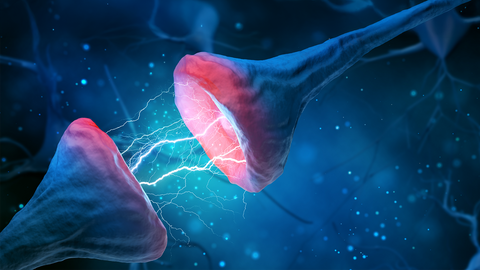Education

In a world of health fads and crazes, it’s easy to feel like science is changing every day. Some things that were healthy to our parents’ generation might now be considered dangerous and ill-advised. But in reality, most building blocks of good health never really change. It may not be revolutionary or sensational, but one of the best things you can do for yourself is take a multivitamin. Multivitamins provide a basic foundation of minerals and nutrients, and taking them can have a number of positive health benefits.

The more health-conscious you are, the more challenging it can be around the holidays. If you’re someone who’s used to having a strict routine, then the end of December can be physically and even emotionally stressful. One of the biggest obstacles to overcome is the challenge of eating healthy while traveling. However, if that describes you, then you are in luck. There are many practical, simple steps you can take to maintain (or at least mostly maintain) your diet while heading into the Christmas season.

If stress has been a major issue lately, you may want to take a quick look around you. According to Dr. Sherry Bourg Carter of Psychology Today, one of the most overlooked stressors could be hiding in plain sight: clutter. That’s right, too much 'stuff' in your home or workspace could be contributing directly to your frazzled state of mind.

The end of last week, January 12th, marked a very important, yet under-reported moment in our calendar year. That was the day, statistically, when most people gave up on their New Year's Resolutions. According to Strava, a social media network for athletes, a survey of 31.5 million participants revealed that Saturday was the day most Americans bailed on many of their health and fitness goals.

We’re all keenly aware of the physical changes in our bodies as time passes. It’s obvious from the outside that we’re always in the process of growing and aging. What’s not so apparent, though, is that our brain is doing the exact same thing! You may not realize it, but your brain is constantly in a state of flux, and it goes through distinct phases as you get older. Here is a look at how your brain evolves through the various stages of life.

If you’re in the thick of cold and flu season, and you’re nervous about getting sick, you’re not alone. December to February is peak flu season according to Web MD, and somewhere around 5-20% of us will catch the dreaded flu this year. Although 80% are in the clear, hardly anyone will avoid catching a cold: on average Americans catch 2-4 colds per year, and children typically contract anywhere from 6-10 colds per year. If you find yourself dreading all of this airborne illness, then fear not. There are things you can proactively do to greatly increase the likelihood of escaping winter with your health intact. Here is a round-up of 6 tactics to strengthen your immune system this winter.

If you're looking for a way to stay mentally sharp, consider this: swimming may be one of, if not the best exercise for your brain. You no doubt know of the physical benefits of swimming: increased endurance, cardiovascular health, and a toned physique. What you may not realize, however, is that science is discovering how swimming uniquely affects the brain. Some studies indicate that the brain responds differently to swimming than perhaps any other type of exercise. If you make swimming a part of your regular routine, you may enjoy better focus, mood, and a jolt of mental energy.

If you’ve ever fallen in love, you know full well how powerful its effects can be (for better or worse!) As it turns out, science has revealed that there’s a good reason why love is such a big deal. The effects it can have on us, especially our brains, are like no other. It creates not only euphoria, joy, and fulfillment, but it can also create chemical dependency in our minds. Some researchers even compare the effects of love to hard drugs in terms of its addictive quality.
If you’re still not convinced of the power of love, continue reading to learn about the surprising effects of love on the brain.

At some point, you've probably been asked this: "What would you eat if you could only have one thing on a desert island?" It's a silly game, but it poses an interesting question. Is there one food that's better than all the others? It's tough to say for sure, but we do know that eggs are one of the most complete foods on earth. Why are eggs good for you? Just one egg contains an enormous amount of vital nutrients and minerals that are key to your health. Not only that, eggs contain powerful fuel for your body and have a host of health benefits. Today we examine 6 reasons why eggs are the best. Scroll down to learn just some of the ways eggs can benefit you and your body.

You hear the word 'neurotransmitter' thrown around all the time in the health industry, but it's not always clear what they are or why they matter. Today we want to take a deeper look at how neurotransmitters function--what they do for you, and why you need them for your body to perform optimally. Scroll down to read more about neurotransmitters and how they could be affecting the way you think and feel.

If you’re like most Americans, you’ve got a lot going on. Statistics show that our schedules are fuller than ever and that we’re struggling to find balance with our time. According to ABC News, 20% of Americans work at least 49 hours a week. A little less than half of that work 59 or more.
Beyond work, US citizens also report high levels of stress with family life. A Gallup poll reveals that 55% of parents with young children feel there isn’t enough time in the day.

All of us who are older than say, 18, remember well what life was like before smartphones. We remember how quickly how they went from being a luxury to a necessity. Now, many of us couldn’t even do our jobs without them. Smartphones are so pervasive that physical therapists are now warning against a phenomenon called ‘text neck,’ which is a deformity in posture due to constantly looking down at a phone. But bad posture may not be the only side effect of phone addiction. Scientists are just now beginning to understand how smartphones may actually be changing our brains–and mostly for the worse. Today we look at some of the cognitive effects of smartphones; also, we will explore ways you can detach from your phone and enjoy life.



